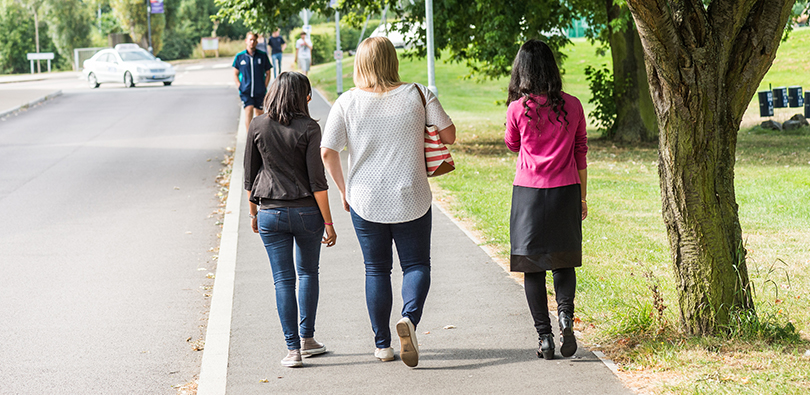
This set of guidelines applies to adults aged 19-64 years. Surveys have consistently demonstrated low levels of physical activity in the adult population, particularly among specific social and demographic sub-groups. Inadequate physical activity and excessive sedentary behaviour, both highly prevalent in the adult population, represent critical public health issues in the UK.
Physical activity guidelines for adults
- For good physical and mental health, adults should aim to be physically active every day. Any activity is better than none, and more is better still.
- Adults should do activities to develop or maintain strength in the major muscle groups. These could include heavy gardening, carrying heavy shopping, or resistance exercise. Muscle strengthening activities should be done on at least two days a week, but any strengthening activity is better than none.
- Each week, adults should accumulate at least 150 minutes (2 1/2 hours) of moderate intensity activity (such as brisk walking or cycling); or 75 minutes of vigorous intensity activity (such as running); or even shorter durations of very vigorous intensity activity (such as sprinting or stair climbing); or a combination of moderate, vigorous and very vigorous intensity activity.
- Adults should aim to minimise the amount of time spent being sedentary, and when physically possible should break up long periods of inactivity with at least light physical activity.
These guidelines are designed to help professionals and practitioners working with adults understand the type and amount of physical activity people should do to benefit their health.
Support and dissemination
Evidence briefing for practitioners
Our evidence briefing focuses on physical activity and adults aged 19-64. This document is designed for professionals who require a review of the available evidence. It includes information on health outcomes of physical activity, current levels and implications of practice.